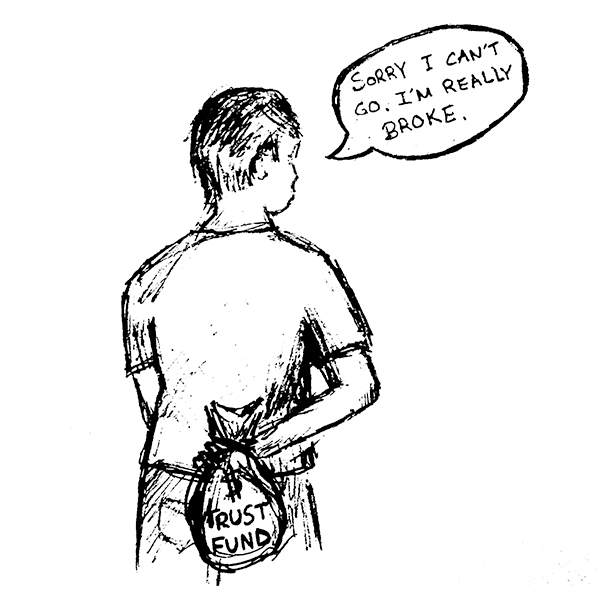Don’t pretend to be broke if it hurts others
October 17, 2019
There’s a big division on campus that no one talks about. It’s not in-state or out-of-state, it’s not Yerba Mate versus kombucha, it’s fake broke versus actually broke.
Someone who’s fake broke has beer money but can’t Venmo you back for the time you bought them groceries. They go out every weekend, only to complain that they’re strapped for cash when you ask to be paid back.
Our socio-economic status determines how we treat each other and how we define our problems as students. In a university as large as UVM, it’s necessary to recognize that not everyone is in the same financial situation.
Claiming to be broke when you’re not can lead to inaccurate definitions of what is affordable student income by UVM administration and other governing bodies.
Let’s consider someone who eats at New World Tortilla twice a day and spends $18 or more to be “broke.” Policies will be made with that person in mind.
Food prices will remain high at point locations, and the very real problems of food insecurity on campus will not be addressed.
One-fifth of UVM students are food insecure, according to the UVM Center for Health and Wellbeing’s website. How we define those students who count as food insecure matters, because it will determine what is the financial norm.
Full disclosure: I count myself as someone who’s fake broke. My parents are paying my tuition, I’m an out-of-state student and I live in a nice apartment downtown. If I run out of cash, that’s on me.
Not every student is so lucky. UVM tuition for out-of-state students is more than $40,000 a year according to UVM’s website, which can have a big impact on students and their parents’ finances. There are scholarships and financial aid, but they can only cover so much.
Calling yourself “broke” when you’re not minimizes the very real costs of attending college for those who aren’t upper-middle class, and further marginalizes them from the UVM community.
Students who are not in the majority, such as first-generation college students face real financial and emotional challenges that contribute to a feeling of lost identity, according to a June 2015 Washington Post article.
When we ignore that divide, we reduce the struggles those students face and further exclude them from the UVM community. We can’t move forward if we act like everyone has the same finances.
When I say I’m “broke” I know full well I’m just dented. It’s time we all took a good, hard look at the true cost of our UVM education.








